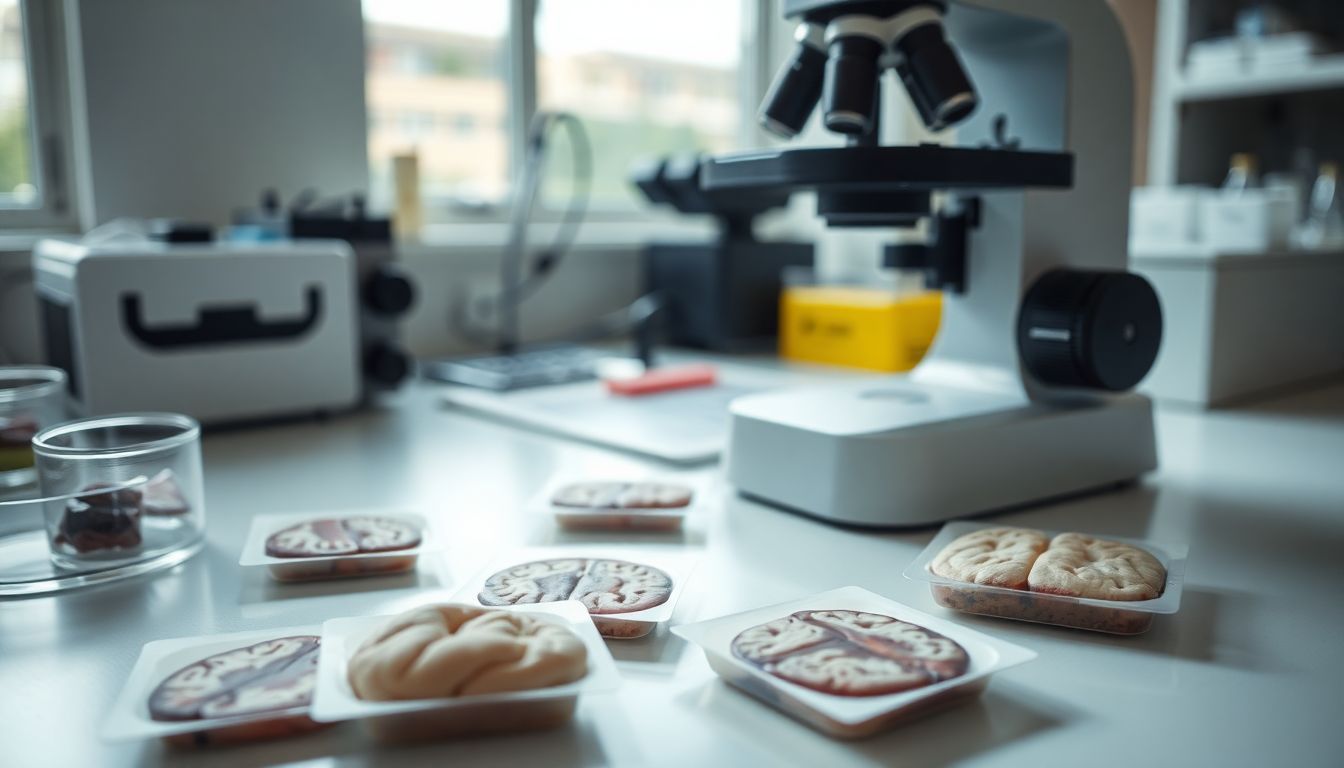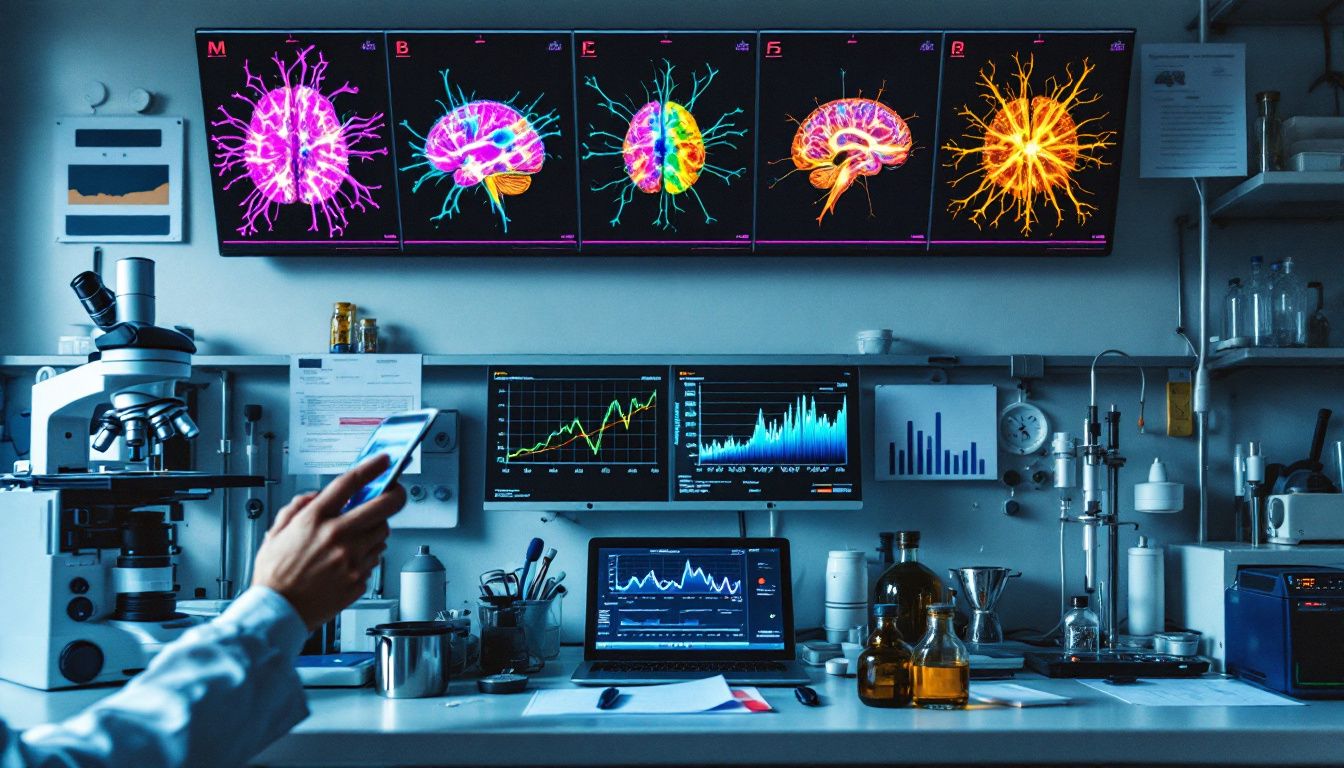Do you ever wonder if damaged brain cells can grow back? Scientists have found that the human brain can form new neurons through a process called neurogenesis. This blog will explore how certain habits and treatments may help support this amazing ability.
Thank you for reading this post, don't forget to subscribe!Keep reading to learn more about how your brain can heal and grow!
Key Takeaways
- The human brain can create new neurons through neurogenesis, mainly in the hippocampus, which supports memory and learning.
- Exercise raises BDNF levels, promoting neuron growth and protecting against cognitive decline linked to aging or diseases like Alzheimer’s.
- A balanced diet with omega-3s and antioxidants supports brain health by fueling neurons and fighting oxidative stress.
- Chronic stress slows neurogenesis due to high cortisol levels, while aging naturally reduces the creation of new neurons over time.
- Research into therapies like stem cells and drugs aims to treat conditions such as Alzheimer’s, Parkinson’s, and traumatic brain injuries by boosting neuron regeneration.
Understanding Neurogenesis

Neurogenesis is the process of creating new brain cells, called neurons. This mostly happens in certain areas, like the hippocampus, which helps with memory and learning.
The process of new neuron formation in the brain
New neurons form through a process called neurogenesis. Neural stem cells in specific brain areas create these fresh nerve cells. One key spot is the hippocampus, which handles memory and emotions.
Another important area is the subventricular zone near the brain’s ventricles.
Brain plasticity allows these new neurons to connect with others, improving learning and cognitive function. Factors such as aging or stress can slow this process down. Yet, research shows adult neurogenesis still happens—keeping hope alive for repairing brain damage from conditions like traumatic brain injury or Alzheimer’s disease.
Areas of the brain where neurogenesis occurs, particularly the hippocampus
The brain can produce neurons in specific regions. One key area is the hippocampus, which plays a significant role in learning and memory. This part of the brain forms new neurons throughout life, especially in a section called the dentate gyrus.
The subventricular zone is another site where neural stem cells create fresh neurons.
Research shows that neurogenesis here supports cognitive function and resilience against brain damage. Scientists like Fred “Rusty” Gage have studied how enriched environments and exercise stimulate this process.
These findings may help fight conditions linked to cognitive decline, such as Alzheimer’s disease or Parkinson’s disease.
The cells born today could be tomorrow’s hope for repairing damaged brain tissue.
Factors Affecting Neurogenesis
Certain activities and choices can help grow new neurons in the brain. Your daily habits play a big role in how well your brain repairs and regenerates itself.
The impact of physical exercise on brain-derived neurotrophic factor (BDNF) levels
Physical exercise boosts brain health by raising brain-derived neurotrophic factor (BDNF) levels. This protein helps grow and protect neurons, keeping neural connections strong. Activities like jogging or cycling can improve BDNF production in the hippocampus, a key area for memory and learning.
Higher BDNF levels support cognitive function and resist cognitive decline linked to aging. Regular movement also encourages the generation of new neurons, helping repair brain damage from conditions like traumatic brain injury or degenerative diseases such as Alzheimer’s disease.
Exercise is simple yet powerful for better mental health and neuron growth.
The role of a balanced diet in supporting brain health and neurogenesis
A diet rich in omega-3 fatty acids can boost brain health and support neurogenesis. Foods like salmon, walnuts, and flaxseeds provide these essential fats. Omega-3s are building blocks for neural cells and help maintain strong neural connections.
Antioxidants found in blueberries, spinach, and dark chocolate fight oxidative stress in the brain. Vitamins like B6, B12, and folic acid aid cognitive function by promoting healthy nerve fibers.
“What you eat fuels your brain—choose wisely.”.
A balanced diet works hand-in-hand with mental stimulation to keep neurons thriving…
The benefits of mental stimulation on neuron growth
Challenging the mind helps produce neurons. Activities like solving puzzles or learning new skills can support brain function. The hippocampus, a critical area for memory and mood, reacts strongly to mental exercises.
These tasks may boost neural connections and stimulate growth.
Researchers suggest complex hobbies provide long-term benefits. Playing musical instruments or picking up new languages are examples that work well. Such challenges enhance cognitive function and slow cognitive decline as people age.
Mental stimulation strengthens existing cortical neuron pathways while encouraging the brain to regrow cells naturally over time.
Challenges to Neurogenesis
Stress and aging can slow down the creation of new brain cells. These factors may weaken the brain’s ability to repair itself over time.
The potential hindering effects of chronic stress and aging
Chronic stress can slow down the brain’s ability to produce new neurons, especially in the hippocampus. This part of the brain controls learning and memory. High levels of cortisol, a stress hormone, have been linked to damage in neural connections and lower rates of neurogenesis.
Stress-related conditions like anxiety or depression may make this worse over time.
Aging also reduces neurogenesis naturally as we grow older. Older adults often face cognitive decline because fewer neurons are created to replace damaged ones. Areas like the subventricular zone show less activity as people age.
Neurodegenerative diseases such as Alzheimer’s disease or Parkinson’s disease further speed up this process, harming overall brain health and function.
Research and Treatment
Scientists are studying how to create new neurons using advanced therapies. This research may help treat brain conditions like Alzheimer’s and Parkinson’s disease.
Ongoing research on medications and therapies targeting neurogenesis
Medications are being developed to help grow new neurons. These treatments may improve brain health and slow cognitive decline. Researchers study how drugs can activate neural stem cells in areas like the hippocampus or subventricular zone.
For example, studies explore genetic therapies targeting the HTT gene linked to Huntington’s disease.
Some therapies aim to treat Alzheimer’s and Parkinson’s disease by boosting cell regeneration. Stem cell therapies also show promise for fixing damaged nerves after traumatic brain injury or neurodegenerative diseases.
Outpatient clinics, such as UT Southwestern Medical Center, investigate these methods further. This research could lead to better tools for treating mental health conditions and improving cognitive function over time.
The potential implications for treating neurodegenerative diseases
Regenerating brain cells could change how we treat diseases like Alzheimer’s and Parkinson’s. These conditions involve the breakdown of neurons, leading to cognitive decline and motor problems.
Stimulating neural stem cells might help produce neurons in critical areas like the hippocampus or subventricular zone. This approach may slow or even reverse symptoms.
Research shows hope for repairing brain damage from injuries or degenerative brain diseases. Advances in understanding genetic pathways and signals could improve treatments targeting neural connections.
Neurogenesis therapies might one day restore memories lost due to Huntington’s disease or traumatic brain injury… but addressing challenges like aging and stress is key first.
Conclusion
The brain’s ability to regenerate cells offers hope for better health. Factors like exercise, healthy foods, and mental challenges help foster neurogenesis. Science continues to explore therapies for diseases like Alzheimer’s and Parkinson’s.
These discoveries may redefine treatments for cognitive decline and brain damage. The journey of understanding our brains is just beginning!
